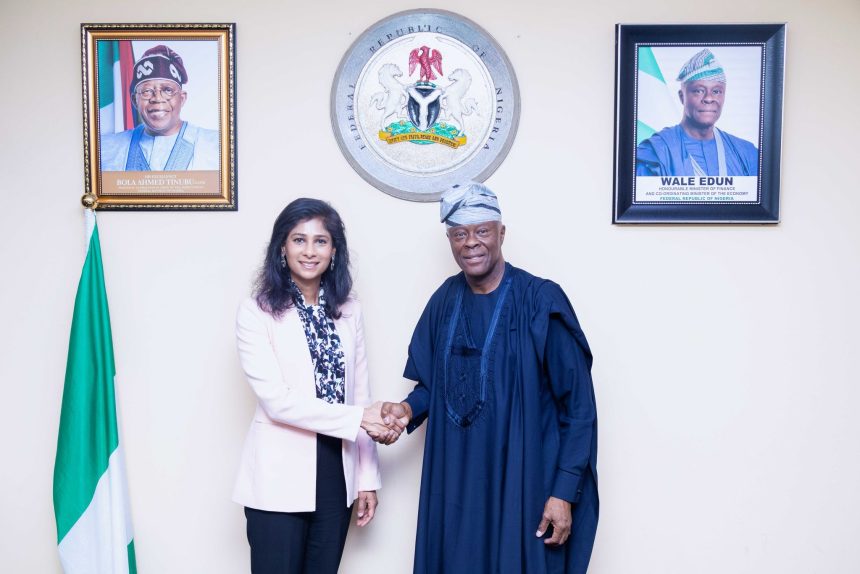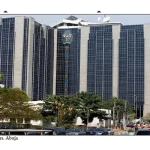Nigeria Updates IMF on Economic Reforms
By Patience Ikpeme
Nigeria has provided the International Monetary Fund (IMF) with a comprehensive update on its ongoing efforts to strengthen social investment programs and implement crucial economic reforms under the leadership of President Bola Ahmed Tinubu.
This briefing occurred during a high-level meeting between the Minister of Finance and Coordinating Minister of the Economy, Mr. Wale Edun, and the IMF’s First Deputy Managing Director, Gita Gopinath, in Abuja.
Edun detailed the government’s transition to a biometric-based, transparent system for social investment programs, aiming to enhance efficiency and accountability in distributing aid. This move signifies a shift towards more targeted and effective social interventions, addressing the critical issue of the high cost of living.
Furthermore, the finance minister outlined the government’s progress in advancing tax reforms, implementing robust revenue assurance mechanisms, and accelerating digitalization across various sectors. These initiatives are designed to strengthen domestic resource mobilization, ensuring sustainable funding for national development. Notably, Edun reported a significant increase in crude oil production, rising from 1.2 million to 1.7–1.8 million barrels per day, a development that is expected to substantially boost national revenue.
Stressing the pivotal role of private sector investment, Edun noted the government’s policy shifts aimed at expanding renewable energy sources, particularly solar power. He also outlined efforts to improve the investment climate and promote service exports, thereby diversifying the economy and creating new opportunities.
Addressing the challenges within the electricity sector, Edun called for the expansion of metering infrastructure to enhance efficiency and reduce losses. This initiative is crucial for ensuring a reliable and affordable power supply, which is essential for economic growth.
On the international front, discussions focused on Nigeria’s active participation in shaping global financial policies and its determined efforts to secure fairer and improved credit ratings for African economies. Edun stressed the importance of enhancing fiscal data transparency, arguing that this would strengthen Nigeria’s credit profile, attract foreign investors, and significantly reduce borrowing costs.
Gita Gopinath, the IMF’s First Deputy Managing Director, acknowledged the significant economic challenges facing Nigeria and emphasized the critical need for targeted social interventions. She reiterated the IMF’s commitment to supporting Nigeria in its pursuit of sustainable economic policies, stating, “We discussed Nigeria’s outlook and efforts to address the high cost of living, including the need to accelerate social support.”
The meeting concluded with a reaffirmation of Nigeria’s commitment to pursuing economic stability, implementing investment-friendly policies, and fostering deeper regional trade integration. These strategic priorities are aimed at paving the way for sustainable growth and prosperity, ensuring a brighter future for the nation.




